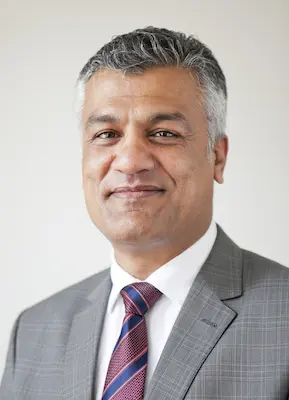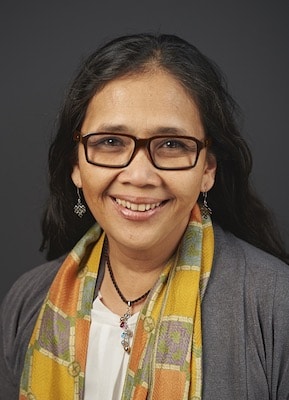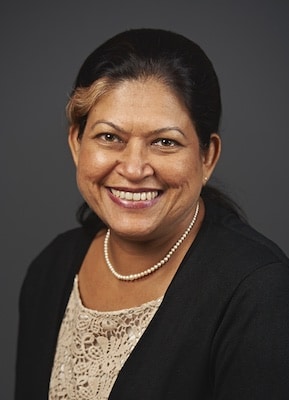InAsia
Insights and Analysis
Peering into the Year Ahead in Asia
January 19, 2022
As the new year dawns, we turn the page on the chapter that was 2021 and cast our gaze towards what lies ahead. The sudden change of regimes last year in Myanmar and Afghanistan and the global spread of the Delta and Omicron variants of the coronavirus are sobering reminders that important events are often beyond our best powers of prediction, but undaunted, we asked our colleagues on the ground across the Indo-Pacific to gather their thoughts and predictions for what the year 2022 will bring.
Afghanistan
High levels of violence, a deteriorating economy, the swift withdrawal of international military forces, and the abrupt collapse of the state in 2021 all present immense challenges—and a few opportunities—for Afghanistan in 2022.
Now under the Taliban’s control, and sanctioned by the United Nations Security Council, Afghanistan’s state institutions and its economy are in crisis. With rapidly rising poverty, fears of famine, and inadequate international financial aid, Afghans are facing a humanitarian catastrophe unprecedented in the country’s recent history. Five months after their takeover, the Taliban have failed to form a consensus-based, inclusive government with a mandate to clarify Afghanistan’s priorities and future political system. The international community remains unwilling to recognize this regressive regime, inadvertently pushing this aid-dependent country closer to a humanitarian calamity.
The new Taliban establishment, however, also has an opportunity to commit to the protection of basic rights and freedoms for all Afghans. Equal access to education and employment opportunities for women and men are among the serious commitments necessary to demonstrate the Taliban’s evolution from an armed opposition group to a political entity responsible for leading governance institutions. The new administration also has a modest opportunity for dialogue on the formation of a broad-based transitional government with a mandate to debate the nation’s future governance system under a new constitution. Only by taking such pragmatic steps can the Taliban meet the basic prerequisites for domestic credibility and international support, both crucial for preventing Afghanistan’s deterioration into a least-governed space and a potential safe haven for international extremist groups where millions of people struggle to survive.
Bangladesh
Bangladesh is entering 2022 after celebrating the 50th anniversary of its independence last year. It also enters the new year as one of the newest members of the middle-income-countries club. The nation has managed so far to keep both the health impacts and the economic losses from Covid-19 to a minimum, and it is expected to return to its high-growth trajectory sooner than was previously anticipated.
Unfortunately, these great achievements have been marred by recent allegations of human rights abuses by Bangladesh’s law enforcement authority. Last year also saw a significant rise in local election violence. As next year’s national elections approach, 2022 will be a critical year for taking the national political temperature.
In 2022, then, Bangladesh will pursue the dual objectives of maintaining high economic growth and reviving its image as a country that upholds democratic values and principles. Geopolitics may also exert significant influence on how Bangladesh navigates the challenges of the year ahead. Bangladesh’s foreign policy is guided by the principle of “friendship with everyone and malice towards none.” While it will need various partners to achieve its ongoing development goals, it will pursue these partnerships delicately, avoiding involvement in the contest between regional powers.
Cambodia
Cambodia has shown resilience and effectiveness in facing the ongoing global pandemic by rolling out an impressive nationwide vaccination program in 2021 that has reached more than 90 percent of the entire eligible population, making Cambodia the eighth-most vaccinated country in the world. At the start of 2022, Cambodia successfully assumed the chair of ASEAN, under the theme ASEAN A.C.T. (Addressing Challenges Together), and it is well positioned to advance the regional agenda against a backdrop of rising geopolitical competition. The nation’s priorities for its year as chair include the adoption of digital technology by micro, small, and medium enterprises, supporting women and youth entrepreneurs, and promoting women, peace, and security.
With two significant new free-trade agreements, with China and South Korea, coming into effect in 2022, it stands to reason that Cambodia will be increasingly looking at ways to enhance trade and reduce nontariff barriers with its Asian neighbors. This approach will likely be fruitful as Cambodia continues to prioritize post-pandemic economic recovery efforts.
China
As 2022 opened in China, 13 million residents in the ancient capital of Xi’an were under strict lockdown in what was seen as the country’s biggest Covid challenge since Wuhan. With important events due to take place throughout the year, including most notably the Winter Olympics in February, the National People’s Congress sessions in March, and the 20th Party Congress later in the year, it is looking increasingly likely that China will retain its tight border restrictions for the entire year.
Stringent pandemic control measures have led to production and travel disruptions, adding further stress to the inevitable pain of transition to a low-carbon, service-driven, consumer economy. As China sets out to achieve common prosperity and close the widening income gap among its population, policymakers must strike a delicate balance between government regulatory measures and the role of markets and the private sector.
On the international front, China’s global footprint will continue to grow. President Xi Jinping announced the Global Development Initiative at the UN General Assembly virtual general debate in September 2021. In the coming year and beyond, China will continue to promote the GDI, which strives for stronger, greener, and healthier global development. It is worth watching how the GDI is fleshed out, how it dovetails with the Belt and Road Initiative, and how China’s actions on key issues of concern to its developing-country partners—such as debt relief, reductions in large-scale financing, and shifting its development cooperation efforts to softer sectors—may affect global development and shape the discourse of international development cooperation in the new year.
Indonesia
Indonesia enters 2022 with confident strides, as Covid cases have fallen significantly since the beginning of the pandemic. The very dark midyear of 2021, caused by the wrath of Delta, made Indonesians more vigilant and more accepting of the limitations imposed by the pandemic. The percentage of vaccinated Indonesians rose dramatically as the government made vaccines more accessible and the people were eager to have them. Partisan politics, which it was feared last year could interfere with the public’s acceptance of the government’s pandemic policies, did not materialize. Masks and vaccines did not become political, nor did they become religious issues. This is partly because since last year there has been a near absence of opposition in Indonesian politics, but it did set the stage for a national positivity rate as low as 0.2 percent in December—far from the 5 percent set by WHO as the safe zone. Indonesians, therefore, began the new year more assured, with economic indicators of growth and inflation on target.
Politically, the country is laying the foundation for 2024 elections. By the end of this year, elected leaders in more than 100 provinces and districts will reach the end of their tenure, but elections will not take place until 2024. This is an unprecedented political event in Indonesian history, and the final stage in the country’s long journey towards “one-day elections” for all levels of both the executive and legislative branches. Because previous elections were staggered, some leaders’ terms will expire before 2024, and they will be replaced by caretakers hand-picked by the central government. Many believe that some wariness is in order, as these caretakers will potentially have the power to set the political tone in their respective areas.
The caretaker mechanism will add to the concern, brewing over several years, that government power is becoming increasingly concentrated. In 2019, President Joko Widodo of the PDI-P party chose the former head of the Ulama Council as his vice presidential running mate, and upon winning reelection, he brought his main political rival into the fold as minister of defense. The consolidation of power continues: by 2021, after a cabinet reshuffle, 81 percent of House members belonged to a political party with representation in the cabinet. Meanwhile, academic and civil society observers continue to warn of growing illiberal trends and shrinking civic space, in which critical opinions are unwelcome and subjected to undue legal consequences.
The nation’s success in curbing the pandemic while keeping the economy growing will enjoy the international spotlight as Indonesia assumes the presidency of the G20 later this year in Bali. With the G20 tag line “recover together, recover stronger,” Indonesia, as the largest economy in Southeast Asia and the 10th-largest in the world in terms of purchasing power parity, is poised to showcase its success in both. As in many parts of the world, however, the rising concern over shrinking civic space will be a separate discussion. And it is safe to assume that the growth-and-recovery discourse will trump the narrative of democracy. With power consolidated on many fronts, the government can stride confidently as it takes the G20 center stage.
Korea
South Korea’s presidential elections in March will be a key event to watch in early 2022. As of January, the race is close between the conservative opposition candidate, Yoon Seok-yeol, and the progressive ruling-party candidate, Lee Jae-myung. Regardless of the election results, South Korea is likely to stay within the “middle zone” in its security alliance with the United States—i.e., less involved with regional security than Japan or Australia are—while maintaining some opening for economic and diplomatic relations with China.
But the pressure for Seoul to choose sides between the U.S. and China will continue to grow. An electoral victory by the conservative Yoon would likely move South Korea more to the right in that middle zone and closer to the U.S. orbit, especially in security cooperation. Economically, a Yoon win would likely strengthen the growing “re-shoring” trend that has seen major South Korean companies move business operations to the United States and away from China.
As South Korea adopts a policy of “living with Covid,” the country will begin to ease internal and international travel restrictions. This is timely, given the emerging window of opportunity for middle powers like South Korea to influence other regional players such as ASEAN, especially in the areas of technology, public health cooperation, and people-to-people exchanges. What Seoul will do with such opportunities remains to be seen.
Tensions on the Korean peninsula are likely to rise this year, after a series of North Korean ballistic missile launches in January that included claims of a hypersonic missile test. The hermit kingdom, which sealed its borders to combat Covid-19, will be ever more isolated as the international community calls for tougher sanctions, but this could be balanced by some kind of international response to the humanitarian crisis unfolding in the North, where the growing scarcity of food and medical care for the average North Korean is recalling the food crisis of the 1990s.
In contrast, South Korea’s global “soft power” will continue to grow in 2022, as Korean popular culture breaks new ground in music, film, television, and social media. This global cultural explosion is already sweeping over India, a nation of 1.4 billion people (compared to Korea’s 50 million), where Korean is the fastest-growing language and an official offering in secondary schools. But the lessons of The Squid Game are not just for global audiences: the story captures the growing perception of domestic injustices in South Korea, especially among young people and marginalized groups.
Finally, demographics continue to cast a shadow over Korea’s future, as the number of births has declined from one million per year in the 1970s to 272,000 last year. The full implications of Korea’s global cultural and economic influence and its simmering social and demographic challenges will be a saga for the years ahead.
Lao P.D.R.
Lao P.D.R., while initially successful in keeping Covid-19 at bay, is seeing a spike in cases that continues to keep borders closed to tourists and travelers. This is expected to continue into 2022, but with vaccinations nearing 50 percent of the population and children six and up ready to receive their shots in the new year, 2022 will be about learning to live with Covid. Expect schools to reopen and green-zone plans for tourists to be instituted to match regional trends.
At the same time, economic effects of the pandemic will have a long reach as the country struggles with decreased state revenue collection and rising debt that puts pressure on recovery options. All eyes will be on the opening of the Lao-China railway and the critical need to use it to boost the local economy, reduce transport costs, and facilitate a tourism-based recovery. Despite the ambitious strategic plans developed in the previous year, the coming year will be about prioritization—tackling the debt burden, helping children return to in-person learning, and boosting local incomes.
Mongolia
Over the course of the last year, the Mongolian People’s Party (MPP) has completed a consolidation of power that is almost unprecedented in Mongolia’s democratic history. President Khurelsukh’s dominant victory in the 2021 presidential elections (a victory not without controversy, as the incumbent president was disallowed from seeking reelection by the courts) means that the MPP holds the offices of president and prime minister while also maintaining a super-majority in parliament. With this dominant position in place until at least June 2024, when the next parliamentary elections will occur, the question now becomes how they will wield this power.
Prime Minister Oyun-Erdene has laid out an ambitious agenda for economic growth and reform and brought many fresh faces into government, but at the same time, some elements within the ruling party seem more focused on limiting opposition from political rivals and civil society. How the tensions and competing objectives within the MPP are managed, and the extent to which party unity can be maintained, will shape much of what occurs in the coming year. It is likely that the persistent challenges of corruption and weak policy implementation will continue to constrain the government’s policy ambitions.
The completion of an agreement with Rio Tinto to continue the expansion of the Oyu Tolgoi mega-mining project will give a boost to plans to accelerate the economic recovery that started in 2021, but the pandemic continues to create significant downside risk. Mongolia entered 2022 at the end of a Covid-19 outbreak that crested in the fall despite strong rates of vaccination, but the highly contagious Omicron variant, and China’s strict pandemic border controls, make it likely that the ambitious projection of more than 6 percent growth in 2022 will be difficult to attain. Mongolia is expected to remain quite aggressive with stimulus measures to help the economy continue its recovery, which in turn will make it likely that inflation, which became an issue in 2021, will continue to be a challenge during the first half of 2022.
Myanmar
The year 2021 started with promise in Myanmar, but the overthrow of Aung San Suu Kyi’s democratically elected government on February 1 was an unexpected and catastrophic shock. It was also a warning to pundits to be careful making predictions about Myanmar. As the country enters 2022, it faces acute challenges that may well persist throughout the year.
Violence directed against peaceful protestors and other opponents of the current administration continues to claim lives and has contributed to the inability of the ruling State Administrative Council to gain either popular support or international acceptance. Armed “Peoples Defense Forces” continue to attack army and police and other agents and assets of the state in urban areas and large swathes of the countryside. This may continue through 2022, complicating an already volatile security environment where more than a dozen longstanding ethnic armed organizations intermittently fight pitched battles against the military.
The economy, already in a fragile state as a result of the global pandemic, is reeling, with an estimated 18 percent decline in GNP in 2021. It is hard to envision a broad recovery, as an ongoing banking crisis shows no signs of easing, earlier reforms for economic openness and transparency have been halted, and political and security challenges will continue to deter local and foreign investment.
While some have predicted nationwide civil war or state failure for 2022, we are more likely to see a smoldering stalemate in the security and political realms. What is certain is that economic decline and the effects of the current political and security situation will continue to hurt the population. With medical and other social services in disarray and poverty rising, a humanitarian crisis is building in what until recently was one of Asia’s newest success stories.
Malaysia
Last year was one of the most politically tumultuous years in Malaysia’s recent history, and 2022 looks set to provide more of the same. Prime Minister Ismail Sabri is the third PM in as many years, and with elections very likely in 2022, there is a good possibility that a fourth PM may take the helm of the nation this year. Last year brought increasing diversification of political power, as the UMNO (the ruling party in Malaysia from Independence until 2018) continued to fracture, then towards the end of the year began to reconsolidate power. Predictions are that UMNO will do well in the upcoming elections and may return to its preeminent position. A wild card is the youth vote, after a High Court ruling in late 2021 that enforced a constitutional amendment lowering the voting age to 18. A little over a million new voters will participate in these elections, perhaps bringing a shift in the political status quo. A new political party, the Malaysia United Democratic Alliance, or MUDA—an acronym meaning “youth”—is well positioned to capture at least some of those votes.
Malaysia is likely to continue on an upward trajectory with its management of Covid-19. A hugely successful vaccination push in 2021 under the management of the new minister of health, Khairy Jamaluddin, means 98 percent of the adult population is fully vaccinated, and policies on movement control have struck a good balance between safety and the reopening needed for economic activity. Omicron notwithstanding, expectations are that Malaysia will continue to open its borders in early 2022, and projected economic growth is 5.8 percent.
The government has solid tools not just for growth but for inclusive growth—the 2022 budget is the largest in Malaysia’s history, containing over USD 120 billion in aid and stimulus packages, and the 12th Malaysia Plan (the five-year development plan), issued in 2021, has good provisions for assistance to less-developed states and a significant push towards decarbonization and green growth. Malaysia’s COP26 targets were among the most ambitious in Southeast Asia. It has announced plans for carbon pricing and carbon tax schemes, and a new energy policy is under development.
Unfortunately, recent history indicates that political maneuvering may continue to occupy the energy and attention of elites, leaving little room for tackling the complex governance challenges facing the nation. Fortunately, Malaysia has a strong spirit of volunteerism and civil society, as has been amply demonstrated by the national response to both Covid and the recent floods in Kuala Lumpur and Selangor, and 2022 will likely bring opportunities for ordinary Malaysians to contribute to the survival and well-being of their fellow citizens.
The Maldives
Despite the persistent challenges of the pandemic, the Maldives attracted over 1.4 million tourists in 2021—triple the number in 2020 and just 18 percent fewer than in pre-pandemic 2019. This remarkable achievement has, to some extent, eased the economic pressures faced by the government.
While the May 2021 bomb attack on the speaker of parliament and former president, Mohamed Nasheed, underscored the simmering challenge of radicalization, the coming year will focus squarely on the run-up to the presidential election in 2023. Campaigning is already under way in many subtle forms, and the acquittal and release from prison of former president Yameen will intensify the political dynamics as the election draws near.
As these domestic issues play out, geopolitics cannot be ignored, as both India and China are seeking to deepen their engagement in the country. Thus, overall, 2022 brings greater economic optimism to the Maldives, but tinged with caution over the potential for political uncertainty as the year advances.
Nepal
If 2021 was a year of unexpected political contestations and transitions in Nepal, 2022 will be one of scheduled changes across local, provincial, and national governments. The past year reminded us that Nepal is still susceptible to political instability and constitutional challenges just four years after the first elections under the 2015 constitution. Looking ahead, nationwide elections in 2022 will usher in formal, planned transitions and a new national government.
While the timing and sequence of the three-tiered elections have yet to be publicly confirmed, their occurrence as envisioned in the constitution will be an event worth celebrating. They will mark the completion of the first five-year election cycle and the first full change of government under the 2015 constitution. It’s a milestone for this, the world’s youngest federal democracy, and all hopes hang on the prospect that it will be peaceful.
The year of elections will kick off in late January 2022 with voting by indirect ballot for 19 seats in the National Assembly. Local, provincial, and national elections will follow. Perhaps most worth watching will be the electoral performance under Nepal’s progressive quota system of female and historically marginalized candidates, who made historic gains in the first round of elections in 2017 and began redefining “tokenism”—but to what extent remains to be seen.
Beyond these important democratic milestones, Nepal will quietly struggle with its continued failure to achieve much-needed progress in formalizing intergovernmental relations under the new constitution, with exasperating pandemic education gaps between the country’s haves and have-nots, and with conflicts and contestations over natural resources that have spilled across government jurisdictional boundaries.
The coming year will also be marked by how effectively Nepal can piggyback on the larger economies in the region to craft a more robust Covid-19 recovery. Elections in many ways may hamper this, but the period after elections is often a time of ambitious development work reflecting the high energy of newly elected officials.
The Philippines
The Philippines faces a challenging year. In May, the nation will choose a new president for the next six years, alongside 18,000 other elected officials. The new administration will take office on June 30, and the second half of the year will be dominated by its appointments and strategic choices.
The primary challenge for the Duterte administration and its successor is dealing with an ongoing pandemic that continues to impact all aspects of life in the Philippines. Vaccination rates are climbing slowly, but with serious disparities in coverage rates between the National Capital Region and more isolated provinces. In the absence of an increase in testing or contact-tracing capacity, and with a healthcare system pushed to the brink, the management of the Omicron variant and subsequent surges is likely to continue to rely heavily on restriction of movement.
The next challenge will be helping Filipinos recover from the impacts of the pandemic. Unemployment, underemployment, and periodic hunger surged, receded, and surged again in 2020 and 2021. The destruction across the middle of the country caused by Super Typhoon Rai/Odette in December 2021 has pushed tens of thousands of families back into poverty. The government acknowledges that economic recovery to pre-pandemic levels will likely take a decade. Recovery cannot rely solely on the unrivalled resilience and optimism of Filipinos—retail, transport, tourism, entertainment, education, and other sectors have been severely damaged and will need creative solutions for recovery.
Perhaps most importantly for the long-term future of the country, the one-quarter of all Filipinos who are of school age have lost two years of schooling, and a system that was already struggling to help children reach competitive education levels is seeing “education poverty” escalate rapidly. Improving education outcomes will require a new national commitment, with significant increases in funding to retrofit schools for Covid-appropriate ventilation, support for teachers, and ideally a catch-up plan to help ensure Filipinos don’t slip further behind their regional neighbors.
All of these are Herculean challenges. The next administration will also grapple with an enforced shift in funding from national agencies to local governments, further reducing the power of the national government to respond to these challenges. That shift will favor politicians with strong local bailiwicks, further cementing the dynastic concentration in Congress.
The national election presents an opportunity for new solutions to these pressing problems to emerge, and an opportunity to demonstrate the underlying strength of Philippine democracy.
Pacific Islands
As borders reopen in 2022, economic recovery, health safeguards, and the climate crisis will dominate the agendas of Pacific Island leaders. The region was struck by a violent underwater volcano in January that wreaked havoc in Tonga and its neighboring islands, reminding everyone of the difficulty in making solid predictions in places so deeply connected to the natural environment. Resilient recovery from Covid and all that it has wrought will depend on widespread and equitable vaccination across the region, provisions for safe travel, and preparedness for new outbreaks as the virus evolves. It will also require sound fiscal management of public resources and a greater economic return from extractive industries.
With the full impact of the Omicron variant yet to play out across the Pacific, significant economic uncertainty remains, especially where there is a reliance on tourism, shipping, and international travel. These circumstances impose significant challenges on already-strained state-owned enterprises, which can be expected to continue their extensive overseas borrowing in 2022.
Three elections scheduled for 2022—in Fiji, Papua New Guinea, and Nauru—are unlikely to be postponed beyond the set parliamentary terms, despite the pandemic. Efforts to secure a mandate to govern will be affected by changes in voter registration, sources of campaign funding, and the growing use of social media both for campaigning and to scrutinize the electoral process, candidate claims and promises, and potential fraud. Voter turnout may be affected by the pandemic, and care will be needed to avoid super-spreader election events, particularly in communities with low vaccination rates.
Territorial affiliations, alliances, and associations within the region are evolving and solidifying, with geopolitical interests more blatantly overlapping with the interests of major extractive enterprises. This may lead to increased tension in many Pacific Island nations as they strive to rebound economically from 2020–21.
Finally, climate change and resource management will remain the most serious issues facing the Pacific Islands for the foreseeable future. The Pacific Island Forum’s new “2050 Strategy for the Blue Pacific Continent” and the Pacific Community’s new “Strategic Plan 2021+” are important regional initiatives to address these challenges while also emphasizing the strengths of the Blue Pacific, including its island and ocean resources, its cultures and traditions, and its resilience.
Pakistan
As Pakistan continues to face daunting economic and social development challenges, a remarkable revolution driven by solution-seeking innovators has taken root. The emergence of a large number of technology-focused start-ups, valued at several hundred million dollars, is helping to unleash opportunities for small businesses and entrepreneurs and access to markets and services that will have exponential economic benefits.
Business-to-business marketplaces, e-commerce platforms, on-demand transport, and logistics apps are making it easier for the small farmer or producer and even creative industry artists to plug into the rapidly transforming supply and delivery chains. As ever, it will be an interesting space to keep an eye on in Pakistan, a country that continues to demonstrate innovation in the face of adversity.
Sri Lanka
Sri Lanka heads into 2022 facing crises on multiple fronts. Plummeting foreign reserves, a high debt burden, and the soaring cost of living make the economic outlook for the new year extremely precarious. The government has drawn heavy criticism for printing money—as much as Rs 213 billion in one day—and negotiating crisis loans and currency swaps that are drowning the country ever deeper in debt. At the same time, ad hoc decisions, like the ill-advised overnight ban on chemical fertilizers (which was later withdrawn), have threatened the country’s food security and the livelihoods of smallholder farmers.
The burning of the container ship X-Press Pearl off the coast of Colombo that resulted in Sri Lanka’s worst marine ecological disaster, continued deforestation around the Sinharaja rainforest, and the reinstatement of policies that permit private elephant ownership have accelerated environmental degradation and climate concerns. Add ongoing routine power cuts, LPG gas shortages, and periodic strikes and work-to-rule actions, and the euphoria that marked the Rajapaksas’ landslide electoral return to power in 2019 has all but dissipated.
Amid the economic gloom and emerging protests, Sri Lanka still struggles to address its core governance issues. Local and international human rights activists have raised concerns about the deteriorating environment faced by Tamil and Muslim minorities and the government’s lack of commitment to deliver transitional justice. The president’s decision to appoint a hardline Buddhist monk to oversee legal reforms to bring all Sri Lankan ethnic communities under one law, his presidential pardon of a close political ally convicted of the murder of a rival politician, the crackdown on online and offline dissent, and his ongoing reliance on former military officers to fill top civil service positions do not augur well for the future.
The government’s Covid response remains something of a bright spot. The vaccination drive has been moving at warp speed, with approximately half of the population now fully vaccinated and over-20’s now receiving boosters. The government hopes that widespread inoculation against Covid-19 will kickstart tourism in 2022 and give the country a fighting chance to revive its economy. If the inoculation campaign gains traction, there is some hope that Sri Lanka will limp forward to achieve the 4 percent economic growth that experts have forecast. But with the debt crisis looming large, and with political, economic, and social tensions smoldering below, 2022 promises to be an extremely challenging year.
Thailand
After two years of intermittent lockdowns and economic uncertainty, Thailand will welcome the world back to the “land of smiles” in 2022. Economic necessity has given the Thai government a sense of urgency to reopen the economy while managing transmission of the coronavirus. The good news: Thailand has achieved an impressive level of vaccination coverage and developed systems that will allow for reopening. Thailand has also shown that quarantine-free travel is possible. The “Phuket sandbox” and “test-and-go” schemes—Thailand’s initial programs to allow vaccinated travelers to enter the country without quarantine—were very successful in late 2021, apparently causing no significant increase in infections in the country. The economy will take years to recover, but it will be well on the way by the third quarter of 2022 as tourism and exports expand.
Thailand will also be hosting APEC in 2022, with the theme of Bio-Circular-Green Economy. The Thai government is hoping to hold most of the meetings in person, including the leaders summit in November.
Expect political contests (and possible turbulence) to dominate the headlines in late 2022, however. The Bangkok governor election early in the year—essentially the capital city’s mayoral race—could be a harbinger of political fortunes for the incumbent national government of Prayuth Chan-ocha, with independent (though opposition-linked) candidate Chadchart Sittipunt well ahead in the polls. The build-up to the next general election will dominate Thai politics towards the end of the year. Despite pressure for an early election, Prime Minister Prayuth has assured all that he will see out his full term, and he is very likely to wait as long as possible before calling an election. The last time Thailand hosted APEC, in 2003, then prime minister Thaksin Shinawatra benefitted greatly from the global profile and the line-up of visiting foreign leaders. So, we should expect Prime Minister Prayuth to stay in place throughout the APEC year.
Thailand’s long border with Myanmar is likely to be a regional hot spot, as fighting continues just across the frontier between the Myanmar army and ethnic armed groups. Expect increased pressure on Thailand to speed up the high-speed rail line to Vientiane, as the Lao-China line becomes operational and borders begin to open.
Timor-Leste
Last year was a year of resilience in Timor-Leste. In April, a once-in-40-year flood killed 48 people and affected over 30,000 households. The country’s exemplary management of the Covid-19 pandemic was also put to the test by a spike in infections from June to September due to the Delta variant. Citizen and government responses led to a relatively effective recovery from these shocks. Economic growth rebounded to 2 percent in 2021 after a 7 percent contraction in 2020. Covid-19 vaccinations began in April, and by the end of the year over 83 percent of adults had received one dose, and over 67 percent two doses. Also, for the second consecutive year, the government passed the national budget on time.
Nonetheless, the 2021 shocks continued to deepen pandemic-era economic scarring for most Timorese. Temporary job losses and business closures have increasingly become permanent. In a May survey by The Asia Foundation, more than 94 percent of micro, small, and medium enterprises signaled that their survival was at risk, and the hospitality industry reported revenue losses of up to 95 percent from the pandemic’s impact on the fledgling tourism industry. More than 68 percent of respondents in a household well-being survey worried about having enough money for their family’s immediate needs. Additionally, increases in crisis-center case numbers reflect rising rates of violence against women and children.
In 2022, Timor-Leste’s economy is projected to expand by 2.4 percent. The main challenge will be ensuring that this growth is equitable. The 2022 national budget, at US$2.18 billion, is the largest ever passed and has a stated focus on human capital and private-sector development. Yet, in 2021, Timor-Leste executed only 73 percent of the national budget, and the effectiveness of the new budget will be only as good as its execution and the quality of national investments.
Critical in 2022 will be well-implemented investments that support the short-term survival and long-term recovery of Timor-Leste’s private sector. A healthy and growing private sector is a necessity for economic diversification, which remains of vital importance given the country’s unsustainable reliance on oil revenues. The government’s Covid-19 vaccination drive will need to continue apace for adults and expand to include youth to mitigate the spread of the Omicron variant and support Timor-Leste’s ongoing efforts to reopen to international travel. Likewise, learning from 2021, climate change adaptation and natural-disaster preparedness will be of growing importance in 2022, given the increasing frequency of destructive weather events. Large-scale natural disasters or Covid-19 infection spikes that restrict domestic or international travel would be detrimental to the country’s fragile economic recovery in 2022.
Mitigating worrying socioeconomic trends will require stronger interventions at the household level in 2022. Vulnerable households will need more inclusive social assistance programs to cope with widespread economic hardship. The redesigned Bolsa de Mãe cash transfer program, due to launch this year, could be a step in the right direction. Also important will be continued investment in efforts to address the sources of violence against women and children.
In 2022, Timor-Leste will begin an 18-month political transition, with presidential elections in March and parliamentary elections in the first half of 2023. These transitions have led in the past to bottlenecks in essential government programs and services. While the hope is that this will be averted, 2022 will be full of political maneuvering.
Vietnam
At the UN’s COP 26 climate conference last fall, the prime minister of the Socialist Republic of Vietnam announced that his country would be carbon neutral by 2050. Embassies, aid missions, and development banks had urged the government to set a target date for net zero emissions, but this announcement was still unexpected.
In the weeks leading up to COP 26, the Ministry of Industry and Trade released the latest in a string of versions of Power Development Plan 8. This version planned for continuing reliance on coal for base load, limited plans for the development of wind and solar, high expectations for liquefied natural gas, and a wait-and-see approach to battery storage. The real problem, the plan made clear, is the grid. Without improvements to the grid, renewables cannot be used to full capacity, and coal will be needed as base load for regional demand. Now, with the prime minister’s announcement, ministries are scrambling to develop plans to comply.
The Vietnamese have been and continue to be astute observers of geopolitical winds. Five years ago, the previous prime minister declared that environmental damage can no longer be considered a legitimate cost of economic growth. The current prime minister, Pham Minh Chinh, may have discovered that not only will joining allies and trading partners in reducing emissions place it in good company, but the transition to a lower-carbon economy may be the key to maintaining Vietnam’s growth and its status as a leading destination for foreign direct investment in the 21st century. Moving this recognition forward from intention to practice will depend on finding a reasonable, low-carbon transition pathway for Vietnam’s legacy fossil-fuel industries.
About our blog, InAsia
InAsia is posted and distributed every other Wednesday evening, Pacific Time. If you have any questions, please send an email to [email protected].
Contact
For questions about InAsia, or for our cross-post and re-use policy, please send an email to [email protected].The Asia Foundation
465 California St., 9th Floor
San Francisco, CA 94104
The Latest Across Asia
Program Snapshot
April 18, 2024
News
April 17, 2024

2024 Lotus Leadership Awards
Thursday, April 25, 2024, New York City
The Lotus Leadership Awards recognize contributions towards gender equality in Asia and the Pacific

























0 Comments